
There’s something which feels inherently wrong about tossing perfectly good food directly into the garbage, yet this is exactly what we’re seeing more and more of, right across the country.
According to EPA stats, in 2015, more food made it into landfill and combustion facilities than any other single material in our everyday trash. And with around 150,000 tons of food being tossed out each day, we can’t deny that there’s a growing problem.
What are the benefits of cutting down on food waste heading to landfill?
Whether you work as an individual, or are part of a large, international office, there are practices we can all undertake to help tackle the issue of food waste. Many work places, for example, will have a busy cafeteria, so establishing a plan of action to reduce food waste in your cafeteria could be a great place to start.
And if we all made just that little bit of effort, the benefits could be huge. We could...
Save Resources: Just because food isn’t consumed, it doesn’t mean it hasn’t still used up vital water, gasoline, energy, labor, pesticide, land and fertilizer supplies. It’s always worth bearing in mind; when we throw food into the trash, we’re wasting so much more than just food.
Begin to tackle methane levels in landfills: Tossing food into the trash, and sending it to landfill, is the equivalent of putting food into a plastic bag and tying up the handles. The nutrients will never return into the soil, where it has the potential to do so much good. Instead, the food will sweat, rot and produce harmful, unnecessary methane gas.
Prevent the above with sustainable infrastructure: Naturally, we’re always going to produce some levels of food waste. So, if food waste can’t be prevented, disposing of it in a conscientious, sustainable manner is super important. Composting, for example, will; improve soil health and structure, improve water retention, support native plants, and significantly cut down on fertilizer and pesticide reliance.
Glasdon are here to help
We passionately believe in sustainability and longevity, and nowhere is this more evident than with our extensive range of compost and food waste recycling bins.
Maybe you’d be well-suited with the compact Nexus® 8G Food Waste Recycling Bin; ideal for small, communal kitchens, offices, or anywhere else where space is at a premium? Or perhaps you’re looking more along the lines of the large capacity Nexus® City 64G, perfect for outside offices, residential building and grocery stores?
Whatever it is that you’re looking for when it comes to appropriately disposing of your food waste, we’ll have a solution which meets your needs. And rest assured that all our food waste recycling containers are built to be aesthetically striking, durable and practical. Take a look below:
| Eco Nexus® 23G | Nexus® City 64G | Nexus® 8G | ||
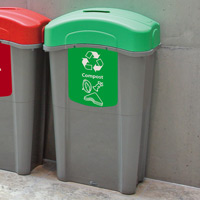 |
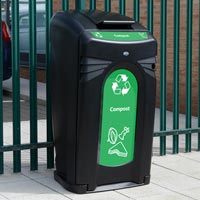 |
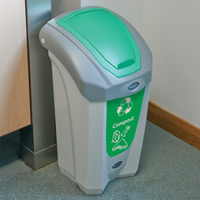 |
||
| Learn more | Learn more | Learn more |
| Nexus® 36G | Nexus® 13G | Nexus® Shuttle | ||
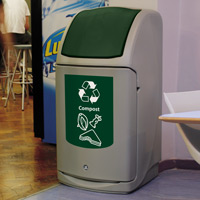 |
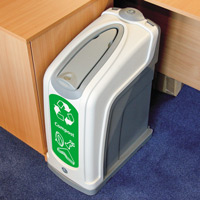 |
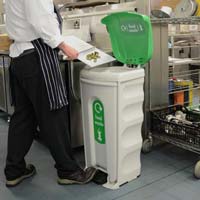 |
||
| Learn more | Learn more | Learn more |
Sources:
https://www.epa.gov/sustainable-management-food/united-states-2030-food-loss-and-waste-reduction-goal
https://www.theguardian.com/environment/2018/apr/18/americans-waste-food-fruit-vegetables-study
https://www.epa.gov/sustainable-management-food/sustainable-management-food-basics#what




